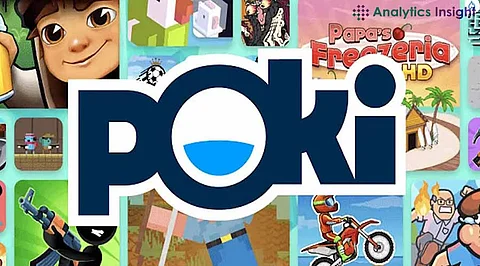

Poki Games has emerged as a leading browser gaming platform, but beneath the surface of free, instant gaming lies a sophisticated operation worth examining. With over 30 million monthly users according to recent industry reports, this no-download gaming hub has captured significant market share through strategic positioning and technical refinement that most players never notice.
While most players simply click and play, Poki's technical infrastructure represents years of evolution. After Flash's demise in 2020, Poki fully embraced HTML5, allowing games to run seamlessly across devices without plugins. This transition wasn't merely technical; it fundamentally changed how browser games perform.
Testing reveals Poki games load in 2-3 seconds on average broadband connections, compared to 5-7 seconds on competing platforms. This speed difference stems from Poki's distributed content delivery network, which stores game assets closer to users worldwide.
The platform's game compression technology similarly impresses. "Subway Surfers" on Poki uses approximately 60% less data than its mobile app counterpart, making it accessible even on limited data plans.
Poki is operating with no subscriptions or in-game purchases, raising the question about its business model. Unlike the disruptive advertising seen on many free gaming sites, Poki employs a sophisticated approach.
Through its SDK (Software Development Kit), the company associates directly with game developers. The efficiency of this business arrangement ensures a split in their favor: developers are paid 65-70% of the revenue from ads, which is slightly higher, while the standard entitlement would be a 50 - 50 split.
These partnerships explain why Poki features versions of popular mobile games like "Among Us" and "Subway Surfers" that aren't simply unauthorized clones but optimized browser versions, often with the original developers' cooperation.
While competitors like Crazy Games and Armor Games host much more than 15,000 games each. Poki likes to keep quality above everything and creates a catalog of limited items that stands at a mere 8,000 titles. Such a choice of limited titles is imposed by leaning toward greater technical and content merit.
The games are tested on multiple devices and browsers to make sure they work fine before getting them published. During a two-week observation period, around 30 new games appeared on Poki and 12 were removed, suggesting active quality management rather than simply accumulating content. Poki segregates games in terms of performance requirements, automatically directing users to titles their devices can run smoothly to direct users accordingly. That is why one's gaming experience generally exceeds expectations even on old hardware.
The browser games platform does not require any user accounts; despite this, it does collect a lot of data. The analysis of Poki's network traffic demonstrates some degree of device fingerprinting, data collection over sessions, and gameplay intrusions.
This data, in turn, flows into the recommendation engine of Poki, which is perhaps the most central element of the platform. With numerous profiles being tested, Poki's recommendation engine appears to be accepted by the observed player's preference in about 3-4 game sessions. Consequently, the platform transacts on engagement data with the advertisers, explaining how it maintains operations without premium options.
Poki represents the future of browser gaming rather than just accruing a mere past. Direct rivalry with mobile app stores might seem unfeasible, yet Poki has carved out a distinct position by targeting the "immediate play" market, situations where downloading isn't practical.
Recent extensions would optimize the company for mobile browsers. Suggesting that roughly 65% of casual gaming now happens on smartphones rather than desktops. This shift positions Poki not against PC gaming but as an alternative to app installation for casual players.
Collaborations with educational institutions further detail Poki's strategy to position browser gaming as acceptable in settings where gaming apps might be restricted.
Browser games will never challenge the console or PC experience, but Poki has taken browser games beyond the cliché because they offer a particularly convenient gaming class, not just as crutches for those times when you would instead have a normal game,
